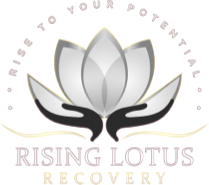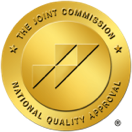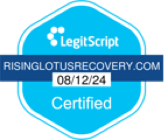If you’re facing legal issues and struggling with addiction, you may feel like there’s no way out. But choosing voluntary rehab admission could be a powerful move for you. It’s not just about your recovery, either—voluntarily admitting yourself to rehab may even affect your legal case.
In many cases, rehab admission shows a commitment to change, which can be seen positively by the courts. It demonstrates to the court your commitment to recovery and your responsibility for your actions. In many cases, this can positively influence your outcome by showing your willingness to address the root cause of your troubles—addiction.
How Rehab Works
Rehab programs provide a structured environment where people can address addiction and rebuild their lives. These programs provide both physical and mental tools to help break the cycle of addiction. There are several types of rehab programs, each designed to address a different, unique situation:
- Detox programs: These help people safely manage withdrawal symptoms under medical supervision.
- Residential treatment: This offers a safe, compassionate, and stable environment designed to help you separate from temptation.
- Partial hospitalization: This uses medical detoxification and therapy to address the physical, mental, and emotional side of addiction.
- Group therapy: This provides a sense of community, enabling participants to share experiences and support one another.
Each program is designed to help in a different way. However, they all work toward a similar goal. They help people rebuild their lives by teaching them new coping mechanisms, establishing routines, and acquiring the skills necessary to live a sober life.
How Does Admitting Yourself to Rehab Affect a Legal Case?
Addiction is the cause of many legal troubles. If you’re dealing with a legal problem due to your addiction, you’re not alone. Fortunately, voluntarily checking yourself into rehab can make a big difference. It shows the court that you’re serious about making changes.
Courts often look favorably on those who show initiative, especially when it comes to addiction recovery. So, checking yourself into rehab proves you’re actively seeking recovery and looking to take responsibility for your past actions.
How Rehab Affects a Legal Case
The act of seeking help voluntarily shows the court you’re taking control of your situation. Instead of waiting for legal intervention, you’re showing the court that you’re willing to make necessary changes on your own. This can impact your legal proceedings by:
- Reducing the perception that you’re unwilling to change.
- Helping to build a positive defense strategy by showing you are proactive in addressing the underlying causes of your legal troubles.
- Potentially leading to more favorable outcomes, such as reduced charges or sentences.
In many cases, the fact that you’ve sought out help may also be taken into account during sentencing. Sometimes, this can even lead to alternative options or a more lenient sentence.
How Rehab Affects Court Decisions
In legal cases, judges will often weigh your actions before sentencing. Choosing rehab instead of waiting for a court-ordered sentence can demonstrate that you’re making progress and are committed to overcoming addiction. This step could show the court you’re actively working to make positive changes, which can reflect well in your legal case.
However, it’s important to note that rehab isn’t a get-out-of-jail-free card. It greatly depends on your unique situation, judge, and legal system. It’s always best to consult with a lawyer before making any decisions or admissions in court.
Can Going to Rehab Reduce a Prison Sentence?
Voluntary rehab admission can play a significant role in reducing a prison sentence. By choosing rehab, you’re demonstrating a genuine desire to change, which can lead to alternatives to incarceration. Some courts may even view rehab as an opportunity for you to address the root of your addiction, so they may be lenient when sentencing.
If you’ve committed to rehab on your own, the court could view this as an indication of responsibility. In certain cases, rehabilitation could even serve as a condition for probation or parole, rather than a lengthy prison sentence.

Can You Be Released Into Rehab from Prison?
In some cases, a person in prison may be permitted to participate in rehabilitation programs as part of their sentence. Courts may offer this option—especially if a person is taking responsibility for their addiction. In fact, some courts will even release a person from prison pre-trial to give them the chance to seek help through rehab.
However, it’s important to remember that this varies. Not everybody gains this opportunity. A person is much more likely to be released into rehab if they’re actively working on their rehabilitation.
How to Choose the Right Rehab Facility
Choosing the right rehab facility is essential to your recovery process. Not all rehab centers are created equally, and each place takes a different approach.
You’ll want to choose a facility that offers:
- Experienced and compassionate staff who understand addiction recovery.
- Structured programs that challenge you and help you make lasting changes.
- Therapeutic approaches such as counseling, group therapy, and holistic practices.
- Focus on long-term sobriety and wellness, including aftercare programs.
- Comfortable amenities that are focused on recovery rather than indulgence.
Choosing a rehab center that is committed to your growth, and not just comfort, is key to a successful recovery journey.
Making a Positive Change for Your Life
Deciding to go to rehab voluntarily is a powerful choice. It’s a way to regain control of your life and work toward a better future. You deserve a second chance, and you’re not alone.
If you’re ready to take that first step, we at Rising Lotus Recovery are here to support you. Contact our team today to learn more. It’s the first step in your recovery journey.




























